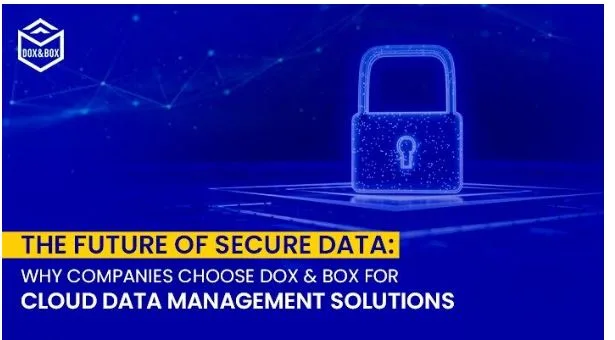Is Mandatory Preschool Essential for a Successful Education Reform Movement?
The US public education crisis is prompting lawmakers to consider a variety of education reform efforts, including adjusting the age at which children must enter the school system. Several recent initiatives have sought to lower the age at which students begin school, including a bill introduced in the state of Washington aimed at shifting the starting age from 8 to 6, and a California bill that would make that state the 20th to mandate kindergarten.
Those in favor of seeing children enter the education system at a younger age argue that an earlier start leads to better student outcomes. It’s the same argument that has led some to promote the idea of implementing universal preschool as part of the American education system.
Opponents of the shift offer several arguments, including the view that the structured curriculum guiding student learning within the public school system is not beneficial for preschool-age children. However, one of the chief arguments is that students should not be subjected to failing educational programs for any longer than necessary.
“Universal mandatory preschool would put yet another phase of childhood development into the hands of the government, whose dismal record of success has already proven its incompetence with compulsory education,” says Justin MacDonald, Head of Academy at The Academy at District Church. “It’s definitely not a shift that should happen. Society doesn’t need more schooling; it needs better parenting. And that happens with parents, not with teachers or school leaders.”
MacDonald leads a bold movement to reimagine K-12 education through a Christian, purpose-driven lens. With a background that spans award-winning classroom teaching, varsity coaching, and global leadership, MacDonald brings a rare blend of frontline experience and strategic vision to the future of school. His goal at The Academy at District Church is to equip students not just for tests, but for life — cultivating independent thinkers, courageous leaders, and resilient, faith-grounded young adults.
“Every child comes with their own timeline for development, which they should have the freedom to pursue,” MacDonald says. “Mandatory education requires them to get on an artificial timeline that works against the intended goal of preschool, which is to foster healthy childhood development.”
How can parents of preschoolers navigate the education reform movement?
The good news for parents of preschoolers is that universal preschool won’t necessarily mean mandatory preschool. Recent reform efforts aim to achieve educational equity by increasing access to programs and improving standards through greater accountability, but not mandating attendance.
Still, the shift toward universal preschool may give parents opportunities to improve the education they can provide to their children. Advocates for universal preschool say it will close student achievement gaps that exist in modern American education, especially for students coming from low-income or other disadvantaged backgrounds. As local school boards open the door to new early childhood education opportunities, parents will need to decide if sending their kids through those doors is a wise choice.
“To evaluate whether or not preschool is right for your child, you’ll need to get clear on what you’re solving for,” MacDonald says. “Only then can you evaluate if your target preschools solve for it. Choosing the right school should be just like any buying decision you make.”
MacDonald’s guidance highlights the fact that each preschool option available to parents may embrace a different approach to education. A Reggio Emilia approach, for example, involves an educational model that encourages learning based on each child’s interests and ideas, whereas academic-focused preschools will have a more structured approach that teaches the academic skills children will need for kindergarten.
“Know your children,” MacDonald advises. “Acknowledge they are different, even from their siblings. Consider what new experiences, opportunities, and challenges will foster the growth you know your child needs. Then find the solution that best fits the child’s unique needs.”
How could systemic reform efforts create new opportunities to meet preschoolers’ educational needs?
School choice is another component of modern K-12 education reform that could impact the opportunities available for preschoolers. Support for school choice initiatives is based on the belief that parents, rather than the board of education, know what is best for their kids. By creating more options in the public education system, such as government-funded charter schools and private schools, school choice gives students access to education beyond their local district, essentially allowing them to shop around for high-quality education.
In January 2025, US President Donald Trump issued an Executive Order in support of educational reform that directed the Department of Education to advise state education officials on how to use federal funds to empower school choice programs. The order cites “educational choice for families and competition for residentially assigned, government-run public schools” as a “promising avenue for education reform.”
School choice initiatives could create an environment in which competition leads to better quality education at the preschool level. Enhancements could include professional development requirements for educators as well as more special education opportunities. For parents who view preschool as the best option for their children, school choice could mean a new educational landscape that better supports individualized educational goals.
Is preschool educational reform unnecessary government overreach?
Evaluating whether traditional public schools can provide the personalized education children need is a critical practice for today’s parents, especially in light of the various changes being proposed by reform initiatives. The most important issue, some experts suggest, is determining whether universal preschool truly raises the value of education or is an act of government overreach that should be resisted.
“Preschool, and compulsory K-12 school for that matter, are modern contrivances in the human story, making them non-essential,” MacDonald says. “Parents, you can do this without pre-K. Our ancestors have raised their children for millennia. You got this.”





